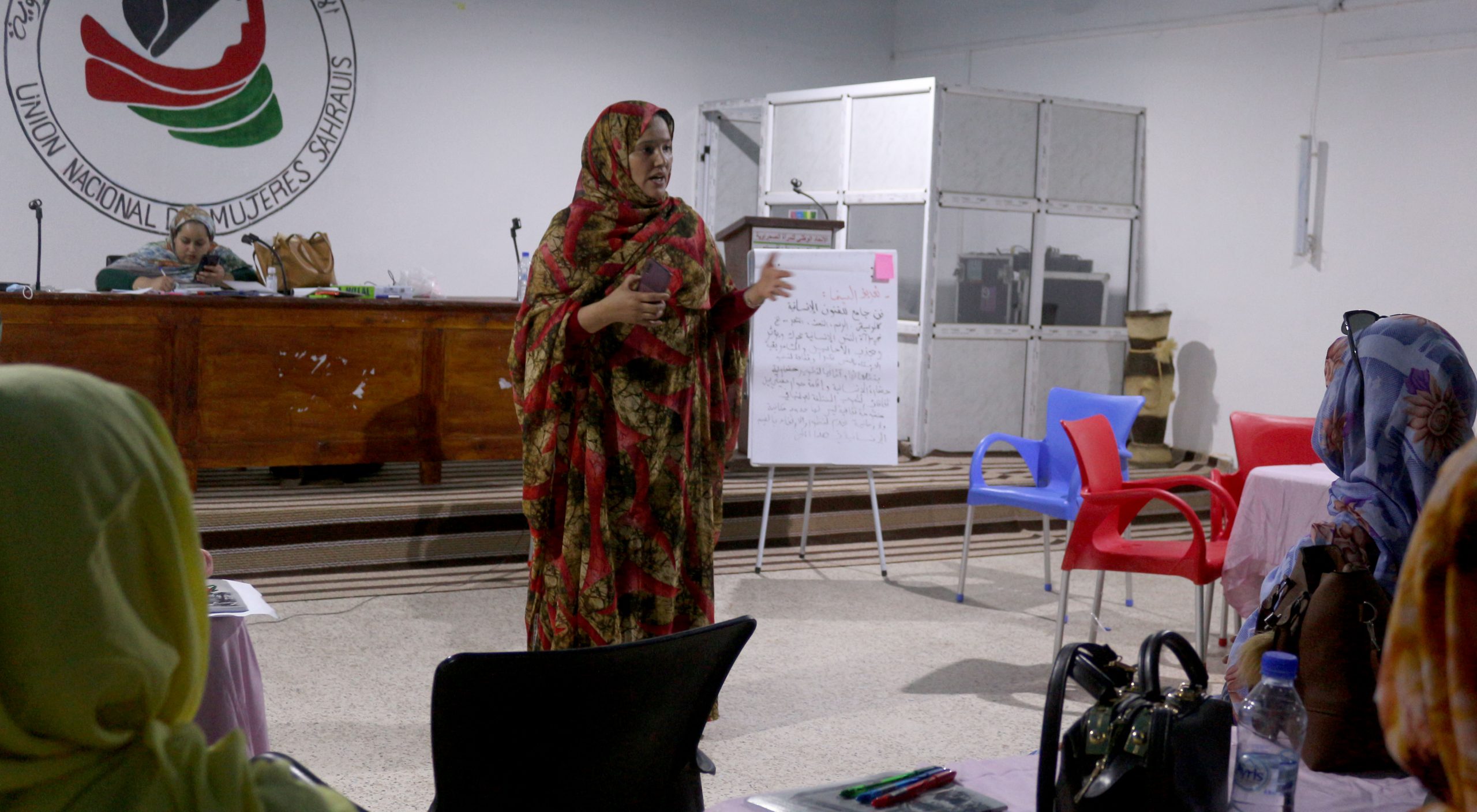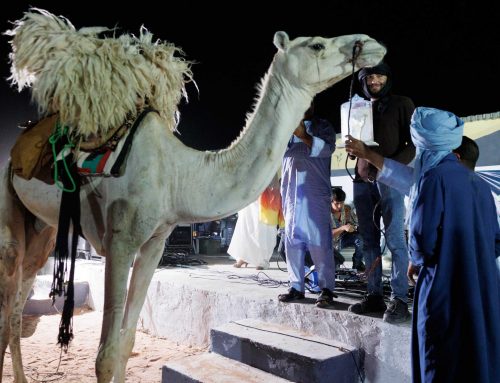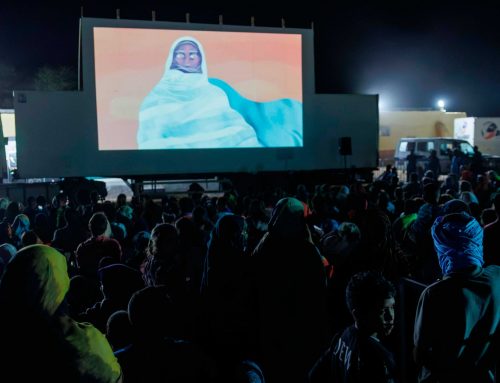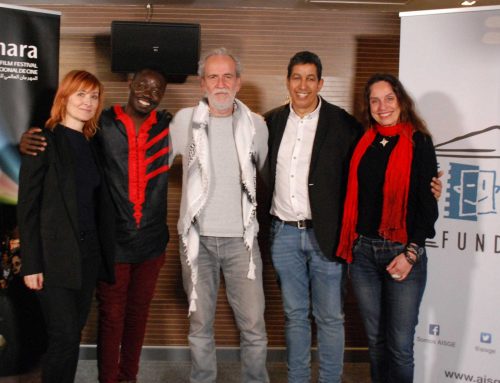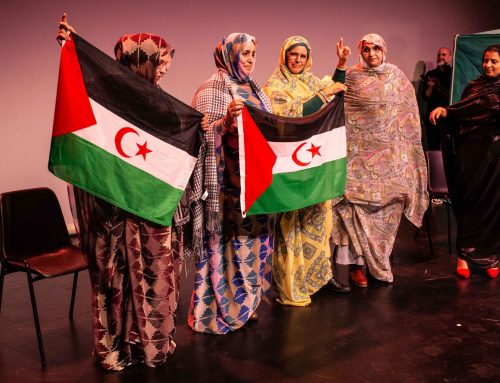FiSahara has teamed up with the National Union of Sahrawi Women (NUSW) and the Spain-based NGO Nomads HRC to offer a film impact workshop that is training women community leaders from the Sahrawi refugee camps to organise film screenings and debates.
The workshop, which kicked off this past Sunday October 25th and will continue until October 29th, seeks to introduce film as a tool for community discussions and to spark activism and social change, with a specific emphasis on gender equality and other issues that affect women refugees.
Fifteen women from the five wilayas or camps (Ausserd, Smara, Dakhla, El Aaiún and Bojador) are learning how to use film to spark conversations and debates around vital themes for the community using cultural, communication and educational films and videos, many of them produced in the refugee camps.
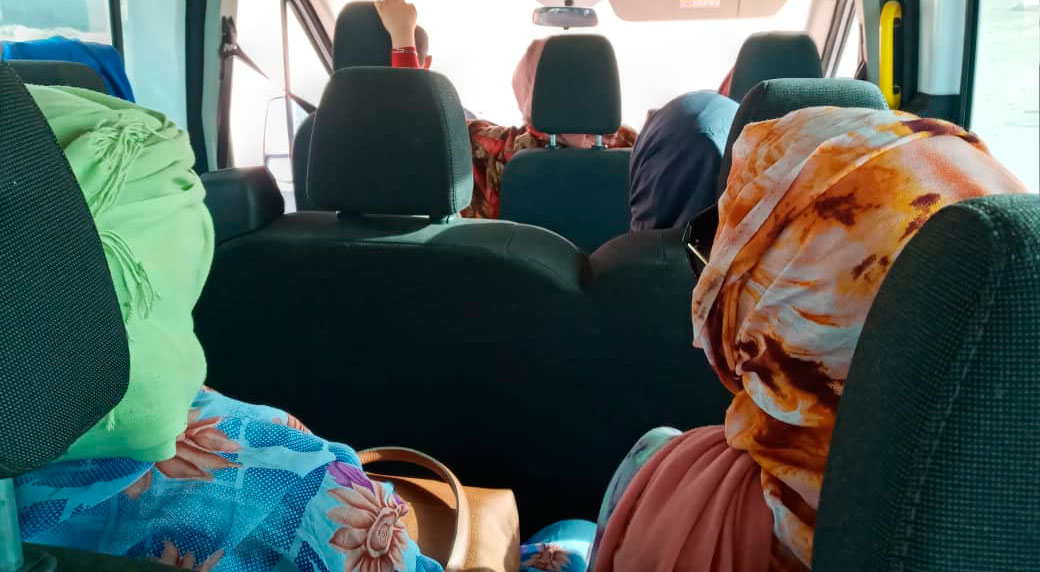
The participants are transferred to Bojador from their wilayas of origin.
Sahrawi instructors Nura Bena Baha and Ebneta Najih, from the refugee camps, in collaboration with Algerian trainer Nadia Brahmi (director of the Oran’s international film encounters), are training participants on how to identify main issues, define and identify target audiences, curate issue-specific films that are appropriate, informative and engaging to these target audiences, identify guests for the discussions and organize speaking panels. For closed-door screenings and discussions dealing with particularly sensitive topics, participants will learn how to make target audiences comfortable by providing a welcoming, secure environment. Sahrawi women make up the entire team — from production, to instruction, to participants.
“Despite having been forced to postpone this year’s FiSahara edition due to the COVID-19 pandemic, the spirit of the festival is more alive than ever, and we are now focusing on empowering vulnerable collectives in the camps such as women or the younger population through human rights films, screenings and filmmaking”, said María Carrión, Executive Director of FiSahara and Co-founder of NomadsHRC.
Once the impact workshop has concluded participants will receive a diploma and, with their new skills, they will follow up with a series of women-led community screenings in each of their wilayas (3 students per wilaya), expanding the formative expansive wave of these impact workshops.
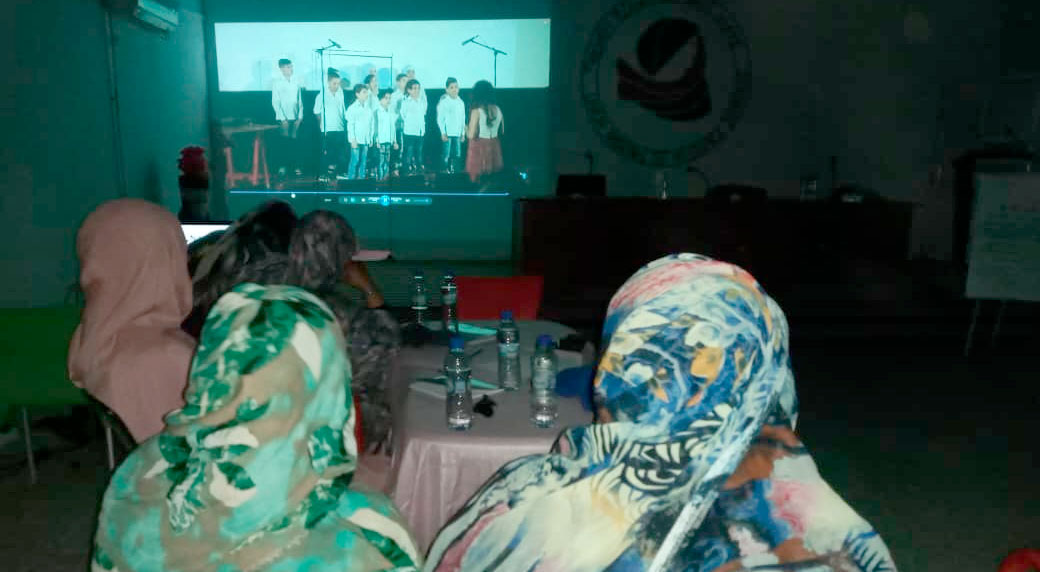
Sahrawi women during one of the screenings.
In the first session entitled The Value and Impact of Cinema, screenings included The Others, a short film by Karama Beirut film festival showing how screenings, debates and workshops can bring together refugee and local communities in Beirut to debunk myths and stereotypes that can lead to the scapegoating of refugees, Sahrawi filmmaker and instructor Brahim Chagaf shared his experience on how Sahrawi cinema is helping to preserve, transmit and communicate Sahrawi culture and struggle. In the words of one of the participants, “he brought us closer to the true image of cinema in the Sahrawi community, as well as its importance, objectives and ways of promoting it so that it is successful.”
This new training is the second of the impact workshops organized in the Sahrawi refugee camps with the support of Movies That Matter‘s International Program. The first of the workshops, which focused on human rights filmmaking for kids, took place this past February at the Pioneers School in the camps, where Sahrawi children made a short film about their lives with their instructor, filmmaker and art therapist Emilio Martí. The film, Little Sahara, is in the post-production stage and will be screened at the next edition of FiSahara.

